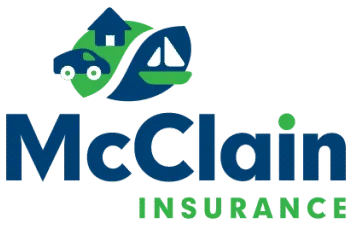If you are in the market for a new car and are looking to take advantage of low prices and dealer incentives before year-end, be sure to read this before you head out to the lot!
A little preparation will go a long way in making everything go smoother when you add your new car to your protection plan. It can also help avoid surprises by giving you an estimate on how your insurance will be affected with a new mini-van versus that sports coupe you’ve had your eye on.
Tip 1: Make and Model Matter!
A sporty car will likely bump up your insurance rates up, especially if you have a young driver in your household. The difference between the Honda Odyssey versus Ford Mustang is not just in the looks.
Tip 2: Safety Features Don’t Always Get Insurance Discounts
Many new vehicles are equipped with high-tech safety features, backup cameras and other electronic bells and whistles. For many car shoppers, it’s exactly those safety features that can make or break a deal. And it’s a perfectly logical assumption that a safer car will rank better when it comes to insurance, as well. However, here’s why more electronics don’t necessarily translate into an insurance discount:
In case of an accident or loss, it’s those vehicle computers that tend to require the most complex and expensive repairs – which, of course, means higher repair costs. Your new insurance premium will take this into consideration.
Tip 3: Have Insurance When You Drive It Off The Lot
“We are not buying a new car today. We’re just looking!” are the famous last words of many car shoppers… before they drive their new vehicle off the lot.
And you’ll want to be sure that you have insurance coverage for that new ride from the moment it rolls off the curb. But sometimes, that phone call to your insurance agent is hard to make on the weekend…. And then what?
Your car dealer will likely point out that it’ll be fine and that you have 30 days to add the new car to your plan. Problem is, that’s not always true.
If you’re trading in a vehicle, thereby switching one vehicle on your protection plan for another one, coverage will likely extend to the new car on a standard insurance policy. But if you add a vehicle to your household ‘fleet,’ it’s not so easy.
Additionally, there are a variety of additional factors that can affect whether or not your insurance will extend.
Bottom line: Don’t rely on the 30-day rule. If you are beginning to think about buying a new car, give your insurance team a quick call right away, and we’ll set you up right. So that when you finally go to buy the new car, you don’t have to worry. It’s as easy as that.
Tip 4: Bridge That Gap – With Gap Coverage
As purchase you new car, you may be presented with the option to buy auto loan/lease or “gap” coverage. “Gap” coverage is needed when you are “upside-down” on your car loan. This can happen if you take on a loan with a zero or low down payment, financing most of the car’s cost.
Since cars depreciate incredibly fast, and as a result, the amount that you owe on the car will quickly be greater than the car’s value.
This becomes troublesome when your car is stolen or involved in an accident. After a total loss, your insurance is only obligated to pay the fair market value of the vehicle. This may leave you in a position where you still owe thousands of dollars on a vehicle that you can’t even drive any more.
This is where gap coverage comes in. It pays for the difference between the market value of your car and the amount you have left on your loan.
If you’re financing your new car, be sure to sign up for this important coverage on your protection plan. We recommend “gap” coverage for all leased vehicles unless it is offered automatically by the leasing company. Drivers of leased vehicles can be even more “upside down” than traditionally financed vehicles.
Tip 5: An Independent Insurance Agent Can Help You Be Flexible
We understand that you may not know what you’re looking for before you head out, or if your search for a new car will even be successful.
But if you work with an independent insurance agent, all it takes is a quick phone call to advise your broker that you’re “on the hunt.” He or she will be able to set you up so you can go shopping with the good feeing of being prepared, without restraint or pressure.
Car shopping in Washington, Oregon or Utah? Give us a call at 425-379-9200 or simply fill out the form, below, for more information.

